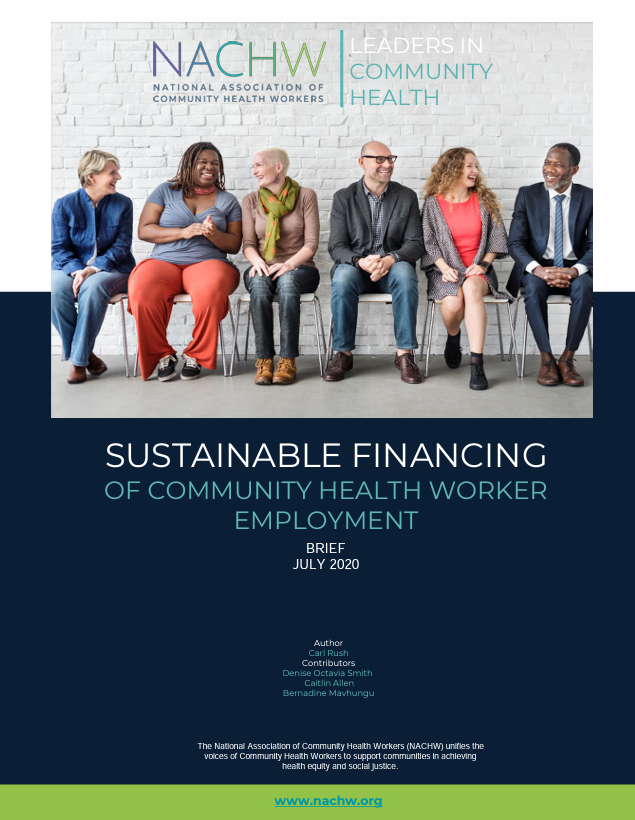Headline
A comprehensive overview of different funding approaches to sustainably finance CHW programs.
Context
Community health workers (CHWs), also known as community health representatives, promotoras, and peer navigators, are trusted health professionals who help to bridge the gap between community members and health and social services, and often share life experience with the individuals and communities they serve. However, CHW positions and services are typically funded through short-term grants, which can lead to instability for CHWs and their clients/patients. By pursuing more sustainable financing sources, health care stakeholders can enable CHWs to practice at the full range of their capabilities, maximizing impact for patients and communities.
Findings
The brief outlines examples of approaches for sustainably financing CHW programs, with distinct funding mechanisms that policymakers, health plans, and provider organizations can each leverage. These include Medicaid section 1115 demonstration waivers, dual eligible programs, Medicaid managed care organization contract requirements, health plans integrating CHWs into administrative or quality improvement costs, and unique funding opportunities available to FQHCs.
Takeaways
There are a variety of viable approaches to fund CHW programs through ongoing and predictable revenue streams. Stakeholders should consider the relative merits of each approach given their local context, including factors such as, engagement of key implementation partners, current policy environment, and other funding mechanisms already in place.

